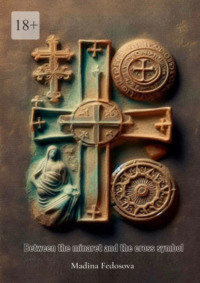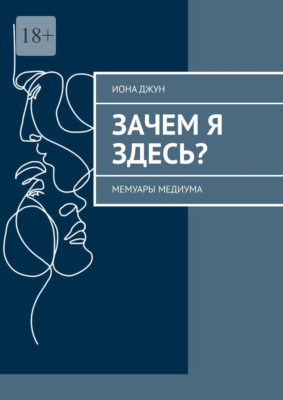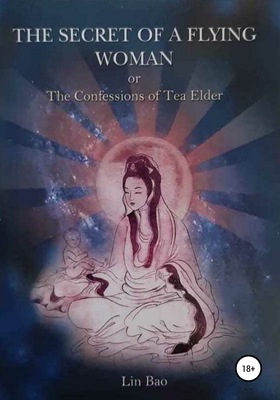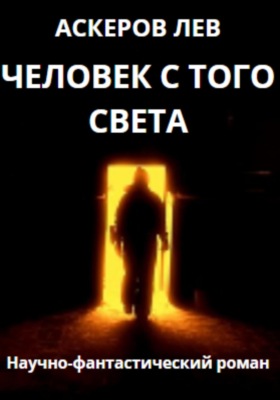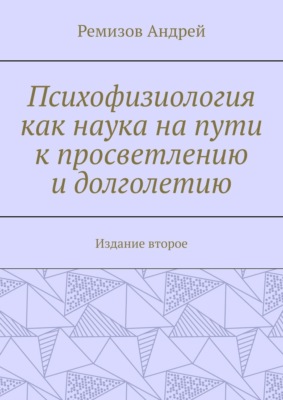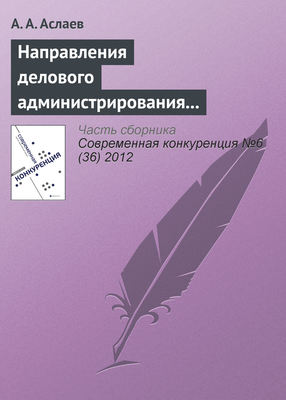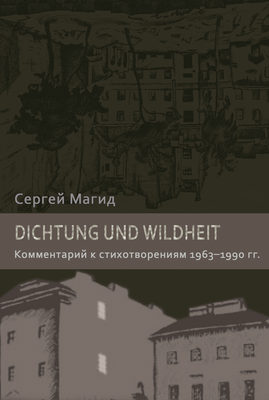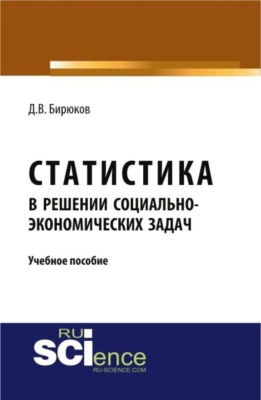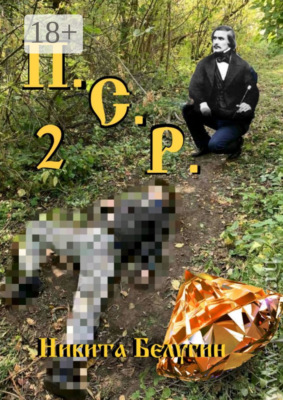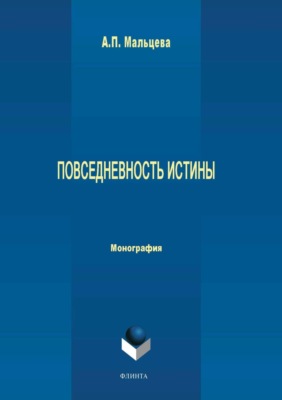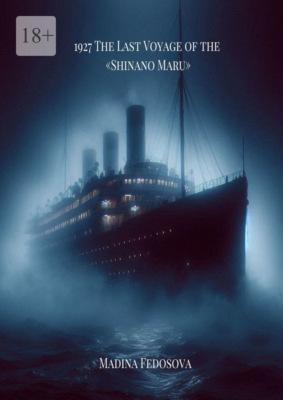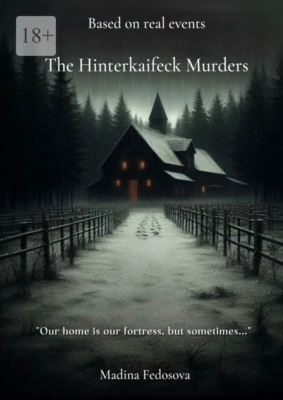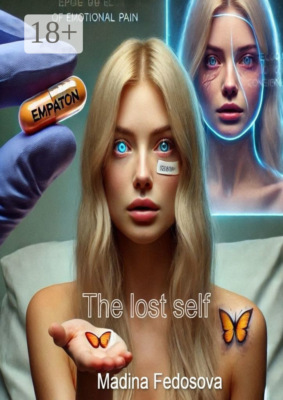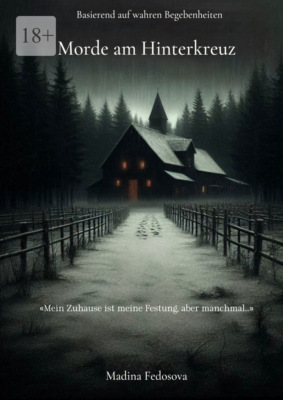Read the book: «Between the minaret and the cross symbol»
© Madina Fedosova, 2025
ISBN 978-5-0067-0136-6
Created with Ridero smart publishing system
«Dear Reader,
Before you begin reading this book, I want to share my intentions with you. I deeply respect both Islam and Christianity, as well as all who sincerely believe in God. This book is not an attempt to discredit any religion, but rather an exploration, an attempt to understand why two faiths so close in their origins have become divided.
I have always been interested in history, especially those moments when religious and cultural traditions intertwined, creating something new and unique. I believe that understanding the past can help us build a better future.
I am aware that the topic I have touched upon is complex and delicate. I have tried to approach it as responsibly and objectively as possible. I hope that my book will make you think about important questions and help you see the world from a new perspective.
Thank you for your attention and trust.»
Introduction
Jerusalem. City of three religions, city of peace and war, of hope and despair. Here, in the narrow streets of the Old City, beneath the scorching sun, the fates of people, faiths, and civilizations intertwine. It is here, guided by ancient maps and mysterious symbols, that Alexandre Dubois, a French scholar and linguist, arrives.
Alexandre is not religious. His faith lies in knowledge, his passion in the pursuit of truth. For years, he has studied ancient languages and cultures, immersing himself in the world of forgotten civilizations. One day, while working in the archives of the Sorbonne, he stumbled upon a fragment of an ancient manuscript that turned his understanding of history upside down.
In this text, he discovered a mention of an ancient faith that existed long before Islam and Christianity. A faith that united people from different tribes and nations, who believed in one God. Studying other sources, Alexandre realized that this faith had left its mark on the symbolism, rituals, and even the texts of both religions.
The idea that Islam and Christianity have common roots seemed crazy to him, almost heretical. But the more he studied the issue, the more convinced he became that he was right. He decided to dedicate his life to finding evidence to support his hypothesis.
He knew what awaited him. The ridicule of colleagues, the opposition of religious fanatics, perhaps even mortal danger. But he could not back down. He felt that not only his scientific reputation was at stake, but also the future of all mankind.
Alexandre arrived in Jerusalem to begin his search. He knew that this city is not only a holy place for millions of believers, but also an arena for a fierce struggle for power and influence. Here, between the minaret and the cross, he will face the darkest sides of human nature.
But he believed he could find the truth. He believed he could prove that people of different faiths have more in common than differences. He believed he could build a bridge between the minaret and the cross, and thereby contribute to the establishment of peace on Earth.
Prologue
The dust of ages
The old map smelled of dust and frankincense, a strange, almost impossible mixture, as if history itself were sealed within the parchment, a concentrate of time and faith. Alexandre ran his finger over the fragile parchment, feeling the roughness of centuries beneath his fingertips.
Under his touch, the shadows of bygone eras seemed to come alive, the whisper of long-silenced voices, the echo of long-thundered battles. The dim light of the desk lamp barely snatched from the shadows the intricate lines drawn by the hand of an ancient cartographer.
The beds of long-dried-up rivers, like scars on the face of the earth, stretched in winding lines, reminiscent of the whims of nature and the transience of all things. The outlines of ruined cities, marked on the map only by a dotted line, testified to the grandeur and fall of empires, to the vanity of human ambitions.
The names of forgotten gods, written in elegant script, whispered of worlds long gone into oblivion, of beliefs buried beneath the layer of time and new religions. The map, like a mirror, reflected the past, alluring and frightening at the same time, promising to reveal its secrets only to those who are willing to dedicate themselves to its study. It was not just a piece of parchment, but a door to another world, where truth is mixed with fiction, and history is intertwined with legends.
He sat in the dusty vault of the library, as if walled in a time capsule, among shelves filled with books, scrolls, and manuscripts, seemingly in the very heart of the past. The smell of old paper, binding glue, and age-old dust tickled his nostrils, creating a unique atmosphere steeped in knowledge and secrets.
The lamp on the table cast bizarre shadows on the shelves, turning familiar objects into mysterious silhouettes. Outside the window, Paris was buzzing, alive and modern, a city of lights and passions, with its fashion, bustle, and eternal pursuit of the new.
But here, in this quiet corner, time seemed to have stopped. The world outside the window seemed distant and unreal, like a scene from another film. Here, silence reigned, broken only by the quiet rustling of pages and the muffled ticking of ancient clocks, counting not minutes, but centuries.
Here, among these old books, one could feel the breath of history, touch the wisdom of the ages, hear the voices of those who lived long before us. It was a place where the past came alive, where one could forget about the present and look into the future, relying on the knowledge of ancestors.
The map, on which he had been working for several months, meticulously redrawing every line, every mark, was not merely a geographical scheme, but an echo of history, a reverberation of lost knowledge. It was a copy of an ancient document found in a secluded monastery in northern Syria, in the very heart of the ancient land where cultures and religions had mingled. The original, to his great regret, had fallen victim to recent battles, becoming one of the countless losses in the merciless war that was erasing not only lives but also memory from the face of the earth.
However, the copy, as if by chance or providence, had survived, preserving within it a spark of the past. Alexandre suspected that it was not just a map, not just a diagram of the location of certain objects. It was a key.
A key to a secret sleeping for centuries, to the solution of a question that had troubled the minds of philosophers and theologians for centuries. A key that, if used correctly, could overturn ideas about the origins of the two greatest religions in the world, about the roots of faith that unite and divide humanity.
He felt that he was on the threshold of a discovery capable of changing the course of history, but he also realized the danger that this knowledge held. For history, as is well known, is written by the victors, and the truth is often inconvenient and unwanted.
He leaned back in his creaky chair, upholstered in faded leather, and closed his eyes. The weight of the past day, the burden of the knowledge he was striving to grasp, pressed down on him like an invisible hand. His head buzzed with fatigue, like a swarm of disturbed bees, giving him no peace. Sleepless nights spent studying ancient texts, decaying parchments, deciphering mysterious symbols, arguing with himself – all of this was taking its toll. His eyes burned from lack of sleep, and an insistent ache throbbed in his temples.
But he could not stop. The thirst for knowledge, the desire to get to the bottom of the truth, the feeling that he was on the verge of a discovery that could change the world, were too strong to succumb to fatigue.
This feeling drove him forward, through the darkness of doubt and obstacles, like a beacon guiding a ship in a stormy sea. He understood that much depended on his work, that the truth he was seeking could bring both good and destruction. But he was ready to risk everything, just to solve this ancient mystery, just to get closer to understanding the origins of faith.
Suddenly, like a ray of sunlight breaking through dense clouds, his gaze fell on a detail that had previously escaped his attention. A small sign, barely discernible among other markings, located in modern-day Palestine, not far from Jerusalem – a city sacred to millions, a city that has become a crossroads of history and faith.
A sign he had seen before while leafing through the pages of ancient manuscripts, but had not paid attention to, considering it a random mark or decorative element. Two crossed crescents, their sharp horns seemingly embracing each other, within which is a stylized image of a cross, refined and elegant.
This symbol seemed to pulsate in the dimness of the library, attracting his gaze and igniting his curiosity. He felt a chill run down his spine, as a premonition of something important and extraordinary filled his mind.
This sign, like a key to solving a puzzle, could become the starting point for completely new research, for understanding how the two greatest religions in the world could have common roots that history had kept silent about.
Alexandre froze, as if struck by an electric shock. Time seemed to stand still, frozen in anticipation of discovery. His heart beat wildly, drumming an anxious rhythm in his ears, drowning out all other sounds.
He felt the blood rush to his cheeks, his hands trembling with excitement. He took out a magnifying glass, carefully, as if touching a fragile butterfly, and carefully studied the sign, trying to discern every tiny detail, every line, every curve. There was no doubt.
After examining it from all sides, he realized that it was not a random stroke of a pen, not a figment of the ancient cartographer’s imagination. It was a symbol. A symbol full of hidden meaning and forgotten meanings, a key to understanding that once, in the distant past, there was a faith that united elements of Islam and Christianity.
A faith erased from the memory of mankind, consigned to oblivion, but leaving its mark in this small sign. Alexandre felt a sense of awe overwhelm him.
He stood on the threshold of a discovery capable of changing the world, capable of building a bridge between two great religions, but he also realized the danger that this knowledge carried. After all, the world is not always ready for the truth, especially if it destroys established ideas and age-old traditions.
He stood up abruptly, as if obeying an invisible order, and went to the window, as if seeking an answer in the endless sky. Twilight was falling on Paris, enveloping the city in a soft, mysterious haze. The first lights were lit, turning the streets into sparkling rivers.
But Alexandre did not see the beauty of evening Paris. His thoughts were far away, in ancient Jerusalem, the city of three religions, a city that holds the secrets of centuries. An idea was taking root in his head. Crazy, daring, dangerous.
An idea that could turn his life upside down, jeopardize his career, perhaps even his freedom. But he could not abandon it. It had firmly lodged in his mind, demanding immediate action. He must go to Jerusalem.
He must find evidence of his hypothesis. He must prove that there was once a faith uniting Islam and Christianity. He must uncover this secret, even if it costs him everything. A sense of duty, a thirst for knowledge, and a belief that he was doing the right thing drove him forward, through fear and doubt. He knew that a difficult path awaited him, full of dangers and surprises. But he was ready for it. He was ready to risk everything for the sake of truth.
He knew what awaited him. Not only the skeptical glances of colleagues, scientific disputes and nitpicking criticism, scathing reviews and accusations of heresy. He understood that his research would affect someone’s interests, that his discovery could destroy carefully constructed ideological structures. But also opposition from those who do not want the truth to come out, those who prefer to live in a world of illusions and deception. Those who use religion not as a source of spiritual strength, but as a tool to achieve their selfish goals.
Those who are ready for anything to maintain power, influence and wealth, stopping at nothing, neither lies nor violence.
But he wasn’t afraid. There was fear, of course, but it was overcome by his thirst for knowledge and his pursuit of justice. He was ready for the struggle, for the difficulties, for the danger. Because he knew that more than just his scientific reputation, more than just his personal well-being, was at stake. Something more was at stake. Peace was at stake. Fragile, unstable, but still, peace. Peace between the minaret and the cross. Peace between people of different faiths, cultures, and beliefs. Peace based on mutual understanding, respect, and love. And for the sake of this peace, he was ready to give everything, even his life.
Chapter 1
The City of Three Religions
Jerusalem greeted him with stifling heat, enveloping him like a dense shroud, and deafening bustle, bursting into his consciousness in a colorful cacophony of sounds.
The narrow, winding streets of the Old City, like arteries of an ancient organism, teemed with tourists who had come from all corners of the world, pilgrims seeking spiritual enlightenment, and merchants beckoning customers in all sorts of languages.
The city lived its life, vibrant, rich, multifaceted, a life in which history and modernity, faith and disbelief, hope and despair harmoniously and simultaneously conflicted. Here, in Jerusalem, every stone breathed history, every alley held the secrets of centuries, every corner told its own unique story.
It was a city where the destinies of three great religions were intertwined, a city that had become a symbol of faith and hope for millions of people, a city that simultaneously unites and divides the world. And Alexandre was to find answers to his questions here, to uncover a secret that could change the course of history.
Alexandre rented a small, modest apartment in the Arab Quarter, deliberately choosing a location far from the tourist bustle, from intrusive gazes and idle curiosity. He needed a place where he could concentrate on his research, where he could immerse himself in the atmosphere of the city and feel its pulse.
From the window, there was a breathtaking view of the Al-Aqsa Mosque, majestic and at the same time calming, and the Dome of the Rock, glittering with gold in the rays of the scorching sun, like a symbol of hope and spirituality.
Every morning he woke up to the sounds of the muezzin calling to prayer, and these melodic, drawn-out sounds, spreading over the city, reminded him that he was in a sacred place, where every day is filled with faith and traditions.
This view, this sound, this atmosphere – all this helped him to tune in to work, to feel connected to the past and to get closer to understanding the mystery that he had come to solve.
Without wasting a moment, he immediately began his work. Discarding the fatigue after the flight and settling in, he plunged into the study of the city and its archives.
He visited the library of the National Museum of Israel, where he spent hours studying ancient texts and maps, trying to find at least some clue confirming his hypothesis.
He met with several well-known archaeologists and historians, hoping to get advice or a hint from them, shared his thoughts and listened to their opinions. With great difficulty, using all his connections and authority, he gained access to ancient manuscripts kept in secret archives, where access to outsiders was strictly prohibited. He understood that time was against him, that he had to act quickly and efficiently in order not to miss his chance. He was determined to find evidence of his hypothesis, even if he had to turn all of Jerusalem upside down.
He was looking for any clues, any evidence that could shed light on his theory, any mentions of a forgotten faith uniting Islam and Christianity. He carefully studied ancient texts, maps, archaeological finds, trying to find at least some confirmation of his hypothesis.
But so far unsuccessfully. Despite all his efforts, he could not find anything that could convince the skeptics.
Most of the scholars he spoke with treated his idea with great skepticism. They considered it naive and unrealistic, a product of his vivid imagination based on an insufficient number of facts. They argued that there were too many differences between Islam and Christianity to speak of any common faith in the past.
Their words, like a cold shower, poured down on his enthusiasm, but he did not give up. He believed in his hypothesis and was determined to prove it, despite all the obstacles.
Symbols can be interpreted in different ways,“ the professor replied, shaking his head. „History is full of examples of how people have mistaken wishful thinking for reality, how they have seen what they wanted to see. You shouldn’t build a theory on mere assumptions, based on vague symbols and dubious artifacts. You need solid evidence, Monsieur Dubois, irrefutable facts.
«Alexander understood that the professor was right. His words were full of wisdom and experience. But he couldn’t back down. Something inside him, some sixth sense, told him that he was on the right track. He felt that he was on the threshold of a great discovery, that he was close to unraveling a mystery that would change the world. And he was ready to go all the way, despite all the doubts and warnings.
One day, sitting in a small cafe in the heart of the Old City, smelling of coffee and spices, sipping strong Arabic coffee and pondering his unsuccessful searches, he accidentally overheard snippets of conversation between two young men sitting at the next table. They were talking in whispers, as if afraid of being overheard, and from time to time they looked around. The conversation concerned archaeological excavations that were being carried out near the Temple Mount, a place sacred to Jews, Muslims, and Christians.
«They say they’ve found something very important there,» said one of them, lowering his voice to a whisper. «Something that could change history. Something that could turn the world upside down.»
Alexander tensed, like a predator hearing a barely audible rustle in the grass. He felt hope awaken within him. He approached them and introduced himself, trying to speak calmly and casually.
«I am a historian,» he said, extending his hand. «My name is Alexander Dubois. And I’m interested in archaeological excavations, especially those that are being carried out in Jerusalem. Excuse me for intruding on your conversation, but I accidentally overheard you talking about some important find. May I know what you were talking about?»
The young men exchanged glances, as if deciding whether to trust him. In their eyes, there was distrust and caution.
«It’s a secret,» one of them replied, after a short pause. «Information that is not intended for outside ears. But if you’re really interested, if you’re really looking for the truth, come to the Western Wall tomorrow evening. You’ll find out everything there.»
Alexander hesitated. He didn’t know whether to trust these people. They seemed suspicious and secretive. He didn’t rule out that it might be a trap. But curiosity, a thirst for knowledge, and the hope that he would finally be able to find answers to his questions prevailed.
The skepticism of the professor from the Hebrew University, his cold, sobering view of his theory, sat in Alexander’s head like a splinter, causing irritation and doubt. He wandered through the labyrinth of narrow streets of the Old City, as if trying to find a way out of his reflections, trying to drive his words out of his head, but they sounded again and again, echoing in his mind: «You shouldn’t build a theory on mere assumptions. Science requires proof, not faith.» He understood that the professor was right, that his hypothesis remained only a hypothesis, based on circumstantial evidence and personal interpretations. But he could not shake the feeling that he was on the right track, that he was close to solving a mystery that was waiting in the wings. Doubts tormented him, tearing him between the desire to believe in his theory and the need to remain an objective and impartial scholar. He felt lonely and lost in this huge, ancient city, as if he were alone against the whole world.
Evening descended on Jerusalem. The golden light of the sunset painted the ancient walls in warm tones, but Alexander did not care about beauty. He felt lost and lonely.
Suddenly, like a ray of light breaking through the thick clouds of doubt, he remembered the meeting at the Western Wall, the mysterious proposal of the young men, sounded like a promise to reveal a long-kept secret. Maybe these guys know something that has escaped his attention, something that will help him in his desperate search, something that will become the key to solving the puzzle. Resolutely casting aside doubts, Alexander headed towards the Wall, a place sacred to Jews, a place where you can feel connected to the pastand turn to God with a prayer.
Approaching the Western Wall, in the light of the dim lanterns, he noticed two guys waiting for him. They were simply dressed, in ordinary clothes that did not stand out from the crowd, but in their eyes, there was some tension, even a hidden threat, as if they were ready to protect some secret at any cost. This look alerted Alexander, giving him a premonition of danger. He understood that this meeting could be not only useful but also risky.
«You came,» said Amir, a swarthy guy with short, thick dark hair, his eyes carefully studying Alexander, as if trying to read his thoughts. «Good. My name is Amir, and this is David,» he pointed to his companion.
«Alexander,» he replied, shaking Amir’s outstretched hand, feeling a slight tension in his muscles.
«We know who you are,» David grinned, a fair-haired guy with piercing blue eyes, his gaze seemed sharp and penetrating. «And we know what you’re looking for.»
Alexander was alarmed by this knowledge. He didn’t understand how these people could have learned about his research, about his hopes and fears. Who were they? And what were their motives?
«What do you know?» he asked cautiously, trying to hide his excitement.
«We know that you are looking for evidence of the existence of a common faith that united Islam and Christianity,» Amir replied, his voice sounding even and calm. «And we can help you.»
«Why do you want to help me?» Alexander didn’t trust them, feeling a hidden threat in their words. He couldn’t shake the feeling that he had been drawn into some game in which he had an undefined role.
«Because we are also looking for the truth,» David replied, his blue eyes blazing with a strange fire. «We believe that knowledge of the past can change the future. We believe that the truth must be revealed, even if it is inconvenient and dangerous.»
«What are you proposing?» Alexander asked, ready to hear any information, even if it seemed incredible.
«We know about secret excavations that are being carried out under the Temple Mount,» Amir replied, lowering his voice to a whisper, as if afraid of being overheard. «They found something there that might interest you.»
Alexander held his breath. He had heard about these excavations, about rumors of some incredible finds, but the authorities kept everything strictly secret, not allowing outsiders to access them.
«How can you show it to me?» he asked, realizing that great danger awaited him.
«It’s dangerous,» David replied, his gaze becoming serious and warning. «The excavations are guarded, and the authorities don’t want anyone to know about these finds. They will try to hide the truth at any cost. But if you’re willing to risk it, if you really want to know the truth, we can get in there at night.»
Alexander hesitated. He understood that this could be a trap. But he could not miss such an opportunity.
«I agree,» he said.
«Then come to the Lion’s Gate tomorrow night,» Amir replied. «Exactly at midnight. Don’t be late.»
They parted, like shadows, dissolving into the dense crowd that, like a river, flowed ceaselessly through the narrow streets of the Old City. Alexander remained standing at the Western Wall, alone, looking at the ancient stones, over which the rays of the moon slid. A storm of emotions raged in his head: excitement, fear, hope, and a premonition of something great and unknown.
He felt that his life had changed forever. From the moment he made the decision to take a risk, stepping on this dangerous path, his fate was already predetermined. He could no longer return to his former life, to quiet days in the library, to scholarly debates within the walls of the university. Now, he would face a struggle, a struggle for the truth, a struggle against unknown enemies, a struggle that could lead to glory or destruction.
He touched the cold stones of the Wall with his hand, as if hoping to receive support and strength from them. He knew that a difficult path lay ahead of him, full of dangers and surprises. But he was ready for it. He was ready to risk everything for his dream, for the revelation of a secret that could possibly change the world.
The Western Wall remained silent, holding within it the age-old secrets and hopes of millions of people. Alexander stood before it, a small man in the face of eternity, and knew that from now on, his life was forever connected with these sacred stones and with the city that had become his destiny.
The next day, Alexander spent in the library of the National Museum, as if under siege, buried in dusty tomes and ancient maps, in a desperate attempt to find at least some information about the secret excavations being carried out under the Temple Mount. He was looking for any mentions, any clues, any hints that could shed light on what was happening there, but his efforts were in vain. Everything was classified, as if covered with a thick layer of the dust of time and carefully guarded from prying eyes. Information seemed to have evaporated, disappeared from all available sources, leaving Alexander completely in the dark.
All day long, doubts tormented him, like a swarm of annoying insects. Should he trust Amir and David, these mysterious young men who appeared out of nowhere and offered him help? Were they luring him into a trap, pursuing their own hidden goals? Were they part of some complex game in which he was just a pawn? These questions gnawed at his brain, giving him no peace for a minute. He felt that he was being followed, that he was being watched, that someone wanted to prevent him from getting to the truth.
But, despite all the doubts and fears, he could not back down. Too much was at stake, too great was the chance to uncover a secret that could change the world. He had already crossed the line, and now there was no turning back. He had to go all the way, even if it cost him everything.
In the evening, when night fell on Jerusalem, enveloping it in a mysterious shadow, Alexander, like a conspirator creeping in the dark, headed towards the Lion’s Gate, also known as St. Stephen’s Gate. Each step echoed loudly in the empty alleys, intensifying the tension that gripped his entire body.
His heart was pounding in his chest, like a bird caught in a cage, its beats echoing in his ears. His breathing quickened, and his throat became dry. He felt that something important awaited him, something that could turn his life upside down. Something that could change the world, or at least his perception of it.
Fear and excitement mixed into a strange cocktail, giving him strength and paralyzing him at the same time. He knew that this night could be a turning point in his life, that his decisions and actions would determine not only his fate but also, possibly, the fate of the whole world.
He walked in the dark, as if towards his destiny, ready for any trials that awaited him. He knew that the risk was great, but his belief that he was doing the right thing gave him courage and determination. He must get to the truth, no matter what it cost him.
Approaching the Lion’s Gate, somber and majestic in the light of the sparse street lamps, Alexander saw Amir and David, waiting for him in the shadows. They stood motionless, their faces hidden in the dim light, but Alexander felt their tense anticipation, their readiness for action.
«Ready?» Amir asked, his voice sounding muffled and serious. In his eyes, which flashed in the moonlight, there was determination and confidence.
Alexander nodded, trying to hide the excitement that gripped him from head to toe. He felt a lump rise in his throat but managed to swallow it, gathering all his willpower.
«Then let’s go,» David said, his voice sounding warningly. «But be careful. There may be guards here, and they will not stand on ceremony with intruders. We need to act quickly and silently so as not to attract attention.»
hey set off, like ghosts gliding through the night, their steps quiet and cautious. Alexander followed them, trying to keep up and not make unnecessary noise. He felt adrenaline surging through his blood, sharpening all his senses. He was ready for anything, for any danger that might lie in wait for them on this nocturnal adventure.
They moved into the darkness, creeping like thieves. Alexander followed them, feeling the tension rising. He knew that danger lay ahead. But he was ready to risk everything for the sake of the truth.
The Lion’s Gate remained behind. Amir confidently led them through the labyrinth of narrow alleys. David, walking behind, kept looking back, as if expecting a chase. Alexander struggled to keep up with them, stumbling on cobblestones and cursing his city shoes.
The silence of the night, which covered the ancient city like a velvet blanket, was broken only by the rare howling of the wind, sweeping through the narrow streets like a ghost, and muffled voices coming from open windows, like snippets of other people’s lives, spied through a keyhole. Every sound, every shadow seemed ominous and threatening.
